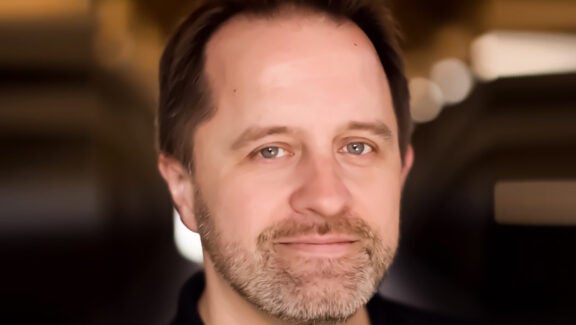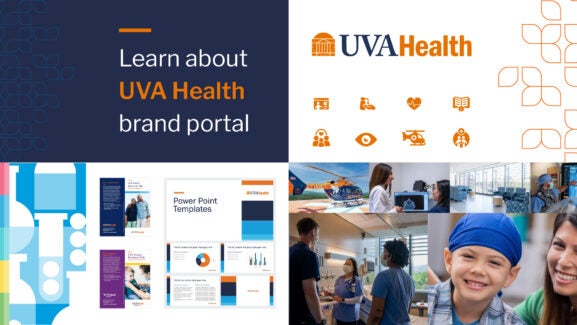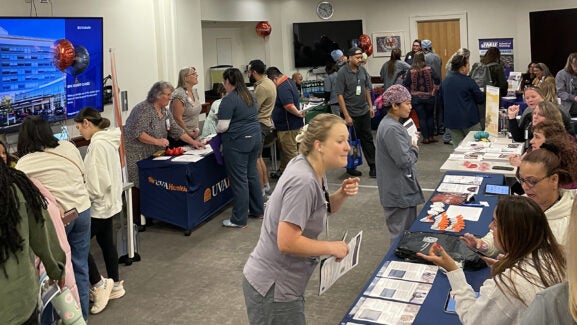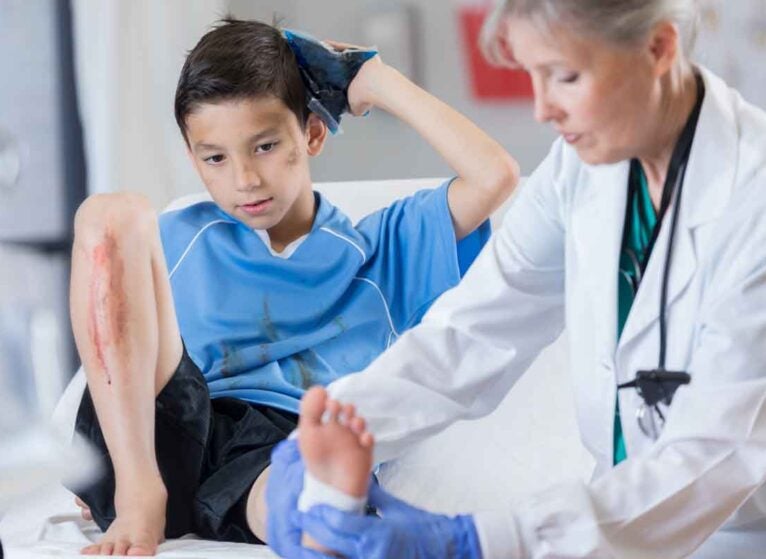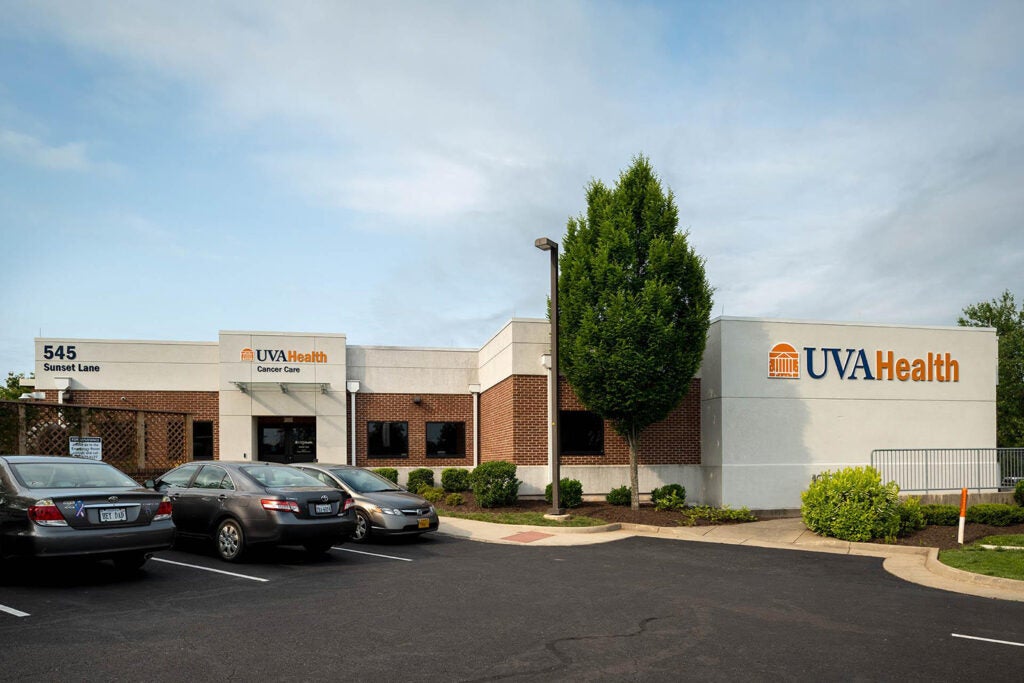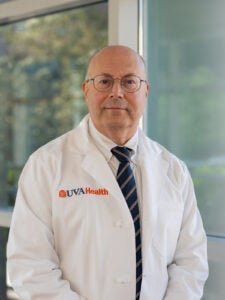
UVA Health Community Update | September 2025
This monthly community newsletter from Dr. Mitchell Rosner, interim Executive Vice President for Health Affairs, highlights how UVA Health serves our patients and the community. To stay up to date on operations, clinical services, and research efforts featured in UVA Health Community Update, subscribe here.
Dear Friends of UVA Health,
I’m pleased to share this month’s Community Update, in which you’ll find insights on thyroid cancer, updates on our new statewide Clinical Trials Network, and practical information to support patients and families in accessing timely care.
Last month, I asked you to provide feedback about what you’d like to read in this newsletter. If you didn’t get a chance to respond then, I invite you to take a minute this month to take the survey and tell us what topics you’d like to read about and the formats you enjoy most. I appreciate your help in making Community Update relevant and educational.
News Feature
Spotlight on Thyroid Cancer: A Conversation With Dr. Nicole Fowler
September is Thyroid Cancer Awareness Month, and to help our community better understand this disease, we talked with Nicole Fowler, MD, a head and neck surgical oncologist and division director at UVA Health who specializes in treating head and neck cancers, HPV-related disease, thyroid cancer, and salivary gland tumors.
The thyroid is a butterfly-shaped gland at the base of the neck that produces thyroid hormone controlling metabolism. Metabolism is a complex series of cell functions which control weight, energy, heart rate, and body temperature. Thyroid cancer occurs when abnormal cells develop within this gland. In 2025, an estimated 44,020 new cases of thyroid cancer will be diagnosed in the U.S. Thyroid cancer is relatively uncommon, and its overall five-year survival rate is about 98 percent.
Q: What are the typical risk factors for thyroid cancer?
A: One known risk is prior radiation exposure to the neck, especially during childhood. A strong family history also raises concern: if more than two relatives have thyroid cancer, that’s a red flag.
Q: Can people reduce their risk?
A: There is no guaranteed preventive measure, but maintaining a healthy diet with sufficient iodine helps. Iodine is a mineral needed for the body to produce thyroid hormone. Luckily, in the U.S., iodine is routinely added to salt and food, so most people are not iodine-deficient and don’t need to seek out supplementation.
Q: Should people undergo routine screening for thyroid cancer?
A: No, not generally. We do not recommend screening for everyone unless there is a known genetic predisposition or a palpable nodule. When evaluation is needed, ultrasound is the key imaging tool and provides detailed information.
Q: What symptoms or warning signs should people watch for?
A: The most common sign is a nodule or lump in the neck. But even so, only 5–15 percent of thyroid nodules are cancerous.
Q: What are the main treatment options?
A: The standard is surgical removal of part or all of the thyroid. For some smaller nodules, a newer option is radiofrequency ablation — a minimally invasive needle-based technique that kills tumor cells without surgery.
Q: What happens if the thyroid is removed?
A: Patients will need to take thyroid hormone replacement after full or partial removal of their thyroid. This is very manageable, and our UVA Health teams work together to fine-tune dosing and care after surgery.
Other News
Finding the Right Healthcare, at the Right Time
We recognize that same-day access to healthcare is one of the biggest concerns facing our patients and families. A crowded emergency room, which often leads to long waits to see a doctor, is not always the right choice — but it depends on your situation.
To make it easier to determine where and how to find immediate care, we have launched a new resource on our website: the Same-Day and Urgent Care Options page. This page includes information on urgent and same-day care clinics located throughout Central and Northern Virginia — wherever a UVA Health clinic or hospital is nearby. By choosing the right setting for your care, you can save time and money while helping ensure our emergency care providers are available for those who need them most.
- Emergency rooms are always the right choice for life-threatening conditions such as chest pain, stroke symptoms, or severe injuries.
- Urgent care is best for injuries or illnesses that need prompt treatment but are not life-threatening, like fractures, severe stomach pain, or burns.
- Same-day care offers convenient appointments for less urgent needs such as colds, fevers, rashes, or minor injuries.
A newer service from UVA Health is our Orthopedic Same-Day & Walk-In Injury Care clinic in Charlottesville, which opened earlier this year. It has quickly become a valuable service, especially on nights and weekends, for those needing same-day appointments and walk-in hours for broken bones, sports injuries, and other orthopedic needs.
Expanding Clinical Trials Access Across Virginia
UVA Health has launched the first sites in its statewide Clinical Trials Network, bringing new opportunities for patients in Culpeper and Northern Virginia to participate in cutting-edge research close to home. Two initial studies are now open:
- The POWER II breast cancer trial, available at UVA Health Cancer Care in Culpeper and the Breast Care Center in Haymarket, is designed for women ages 65 and older with early-stage breast cancer. It aims to help patients make more informed treatment decisions by studying whether a short course of endocrine therapy before surgery can guide the choice between radiation or hormone therapy.
- In addition, the Enhanced Lithotripsy System (ELS) kidney stone device trial is underway at UVA Health Urology in Culpeper. This study is testing a non-invasive technology that uses electromagnetic waves and microbubbles to fragment kidney stones, potentially reducing the need for surgery.
This milestone reflects UVA Health’s commitment to expand access to innovative care and clinical research across Virginia, ensuring that more patients benefit from the promise of discovery without leaving their communities.
In Closing
Thank you for your continued interest in the work we are doing together. Your support and engagement help us strengthen the health of our communities and make a difference for patients and families.
Mitch
Mitchell H. Rosner, MD, MACP, FRCP
Chief Executive Officer, UVA Health
Executive Vice President for Health Affairs, University of Virginia
Henry B. Mulholland Professor of Medicine
Latest News

